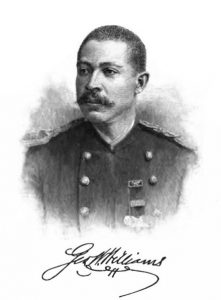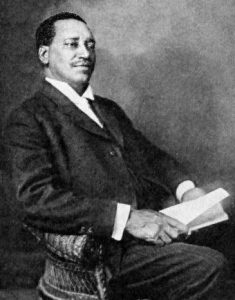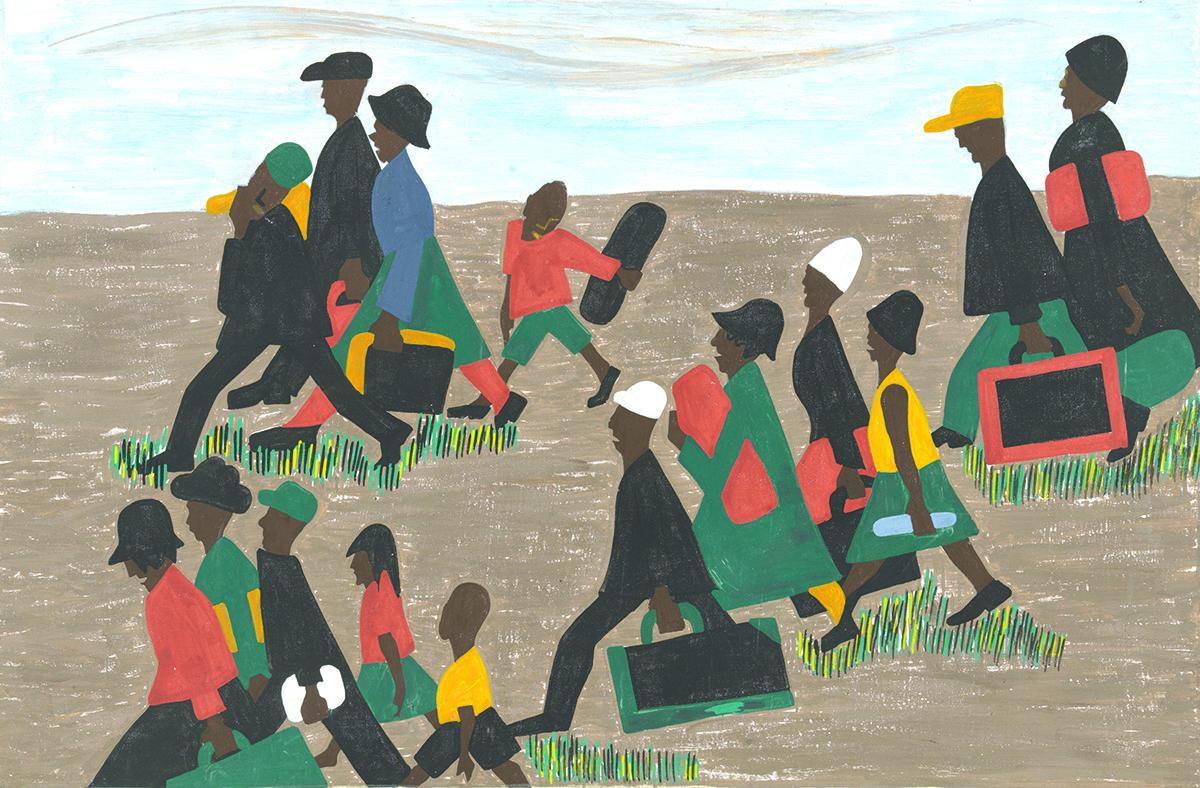Currently I am in two history classes (three if you count art history), and one of them is about world history in the year 1900. One of my favorite books we’ve read was King Leopold’s Ghost: A Story of Greed, Terror, and Heroism in Colonial Africa. The book follows the story of the Belgium King and American explorers conquering the Congo during the scramble for Africa, and how that event led to one of the first international human rights campaigns. The author, Adam Hochschild, had a journalism background and told the story in a very engaging narrative. However, one of the shortcomings of the book was the lack of speaking from an African perspective, which the author himself regrets not being able to do. Regardless, I thought I’d share two of the non-white voices he was able to talk about in detail, two African Americans visiting the Congo, George Washington Williams and William Sheppard.
George Washington Williams was born in Pennsylvania in 1849. He joined the army, fighting in the Civil War and other events. He went to college at Howard University, (which he usually referenced as sounding a bit like “Harvard”), and in a few short years he went from not being able to spell to “compose fluently in the rolling cadences of a 19th century pulpit.” He became a pastor, a journalist, a lawyer, politician, and historian, not staying in any profession for very long. He received praise from prominent people like Frederick Douglass and W.E.B. Dubois. After a series of other accomplishments, he decided to go to a Congo as a part of a program that recruited black Americans to work there. Getting there was not without trouble, but since he decided that’s what he wanted, he did so anyway, even when King Leopold himself (knowing the human rights violations happening) tried to keep him away. And, when he finally got there in 1890, he was “disenchanted, disappointed,

and disheartened” in his open letter to the King about the situation in the Congo. In fact, he said Leopold’s Congo state was guilty of “crimes against humanity,” a phrase 50 years ahead of its time and at least 10 years before the rest of the world was aware of what was happening in the Congo.
Another interesting figure, William Shepard, was born in Virginia in 1865. He was able to go to the Congo as a missionary and also with the help of white supremacist Alabama Senator John Tyler Morgan, who was hoping other African Americans would emigrate there. One of the main differences between Shepard and the other missionaries was that he treated the native population with more respect, like learning their language, even if he didn’t have a completely open mind with some of their religious practices, as he himself was an evangelical
 christian. He truly enjoyed his experience in Africa, at least compared to many of the other missionaries. In 1892, Sheppard became the first foreigner to reach the town of Ifuca.
christian. He truly enjoyed his experience in Africa, at least compared to many of the other missionaries. In 1892, Sheppard became the first foreigner to reach the town of Ifuca.
More information on both of these men and others can be found in King Leopold’s Ghost.

